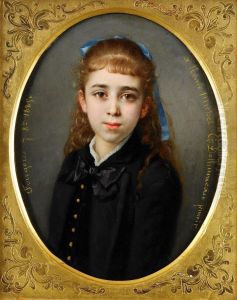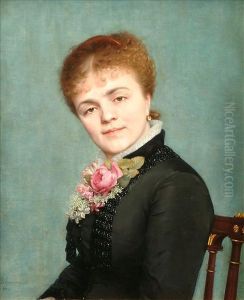Gustave Henri Eug. Delhumeau Paintings
Gustave Henri Eugène Delhumeau was a French artist born on January 15, 1866, in Angoulême, France. He was known for his skilled paintings and contributions to art during the late 19th and early 20th centuries. Delhumeau's work was influenced by the academic artistic traditions of his time, and he often focused on landscapes, portraits, and still life subjects. His style was rooted in realism, and he demonstrated a strong command of light and shadow, which brought a sense of life to his paintings.
Delhumeau studied at the École des Beaux-Arts in Paris, where he honed his skills and developed his artistic voice. He was a contemporary of the Impressionists, but he maintained a more traditional approach to painting. Despite the radical changes happening in the art world at that time, Delhumeau found success with his more conventional style, often exhibiting his work at the Paris Salon, an annual art show that was the official art exhibition of the Académie des Beaux-Arts in Paris.
Throughout his career, Delhumeau received recognition for his work. His paintings were appreciated for their attention to detail and classical beauty. Although not as widely known as some of his contemporaries, he built a respectable reputation in the art circles of France.
Gustave Henri Eugène Delhumeau continued to paint and exhibit his work until his death on November 25, 1943, in Paris. His art has since been displayed in various galleries and museums, allowing his legacy to endure. Delhumeau's contributions to French art remain a testament to his skills as a painter who valued traditional techniques and the beauty of the natural world.


